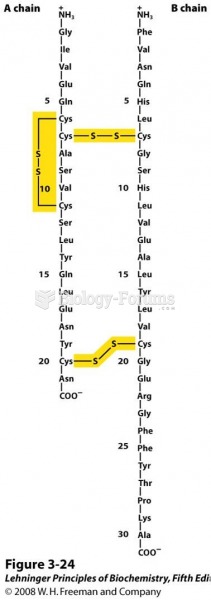Definition for Essential amino acid
From Biology Forums Dictionary
An essential amino acid is one that cannot be synthesised from other available resources, and therefore must be supplied as part of the diet.
The 8 essential amino acids are:
- Tryptophan: tryptophan is a precursor for serotonin and melatonin. It is plentiful in chocolate, oats, bananas, dried dates, milk, cottage cheese, meat, fish, turkey and peanuts.
- Lysine: Lysine deficiency can result in a deficiency in niacin (Vitamin B) and this can cause the disease pellagra. It is also beneficial in treating and preventing herpes. Lysine sources include green beans, lentils, soybean, spinach and amaranth.
- Methionine: Methionine supplies sulphur and other compounds required by the body for normal metabolism and growth. It belongs to a group of compounds called lipotropics that help the liver process fats. It is found in fish, whole grains, and dairy.
- Valine: Valine is needed for muscle metabolism, tissue repair, and for the maintenance of proper nitrogen balance in the body. Valine is found in high concentration in the muscle tissue. It is also one of the three branched chain amino acids, which means that it can be used as an energy source by muscle tissue. It may be helpful in treating livere and gallbladder disorders, and it is good for correcting the type of severe amino acid deficiencies that can be caused by drug addiction. Dietary sources of valine include dairy products, grain, meat, mushrooms, peanuts, and soy proteins.
- Leucine: Leucine is a branched chain essential amino acid that stimulates muscle protein synthesis and may be the major fuel involved in anabolic (tissue building) reactions During times of starvation, stress, infection, or recovery from trauma, the body mobilizes leucine as a source for gluconeogenesis (the synthesis of blood sugar in the liver) to aid in the healing process. It has recently been suggested that leucine may have beneficial therapeutic effects on the prevention of protein wasting, as it occurs during starvation, semi-starvation, trauma, or recovery after surgery. Insulin deficiency is known to result in poor utilization of leucine; therefore, individuals who suffer from glucose intolerance may require higher levels of leucine intake. Leucine is found in cottage cheese, sesame seeds, peanuts, dry lentils, chicken, and fish.
- Isoleucine: Isoleucine is a branched chain amino acid that is important for blood sugar regulation, muscle development and repair, haemoglobin development, and energy regulation. Deficiencies of isoleucine result in possible dizziness, headaches, fatigue, depression, confusion and irritability. Isoleucine is found in eggs, fish, lentils, poultry, beef, seeds, soy, wheat, almonds and dairy.
- Threonine: Threonine is important for antibody production. It can be converted into glycine and serine. Deficiencies are rare but can result in skin disorders and weakness. Dietary sources of threonine include dairy, beef, poultry, eggs, beans, nuts, and seeds.
- Phenylalanine: Phenylalanine serves in the body as a precursor to the catecholamine family of hormones. These hormones include adrenaline and noradrenaline, which are activating substances in the central and peripheral nervous systems. Deficiencies are rare but can include slowed growth, lethargy, liver damage, weakness, oedema, and skin lesions. Food sources or phenylalanine are dairy, almonds, avocados, lima beans, peanuts, and seeds.



